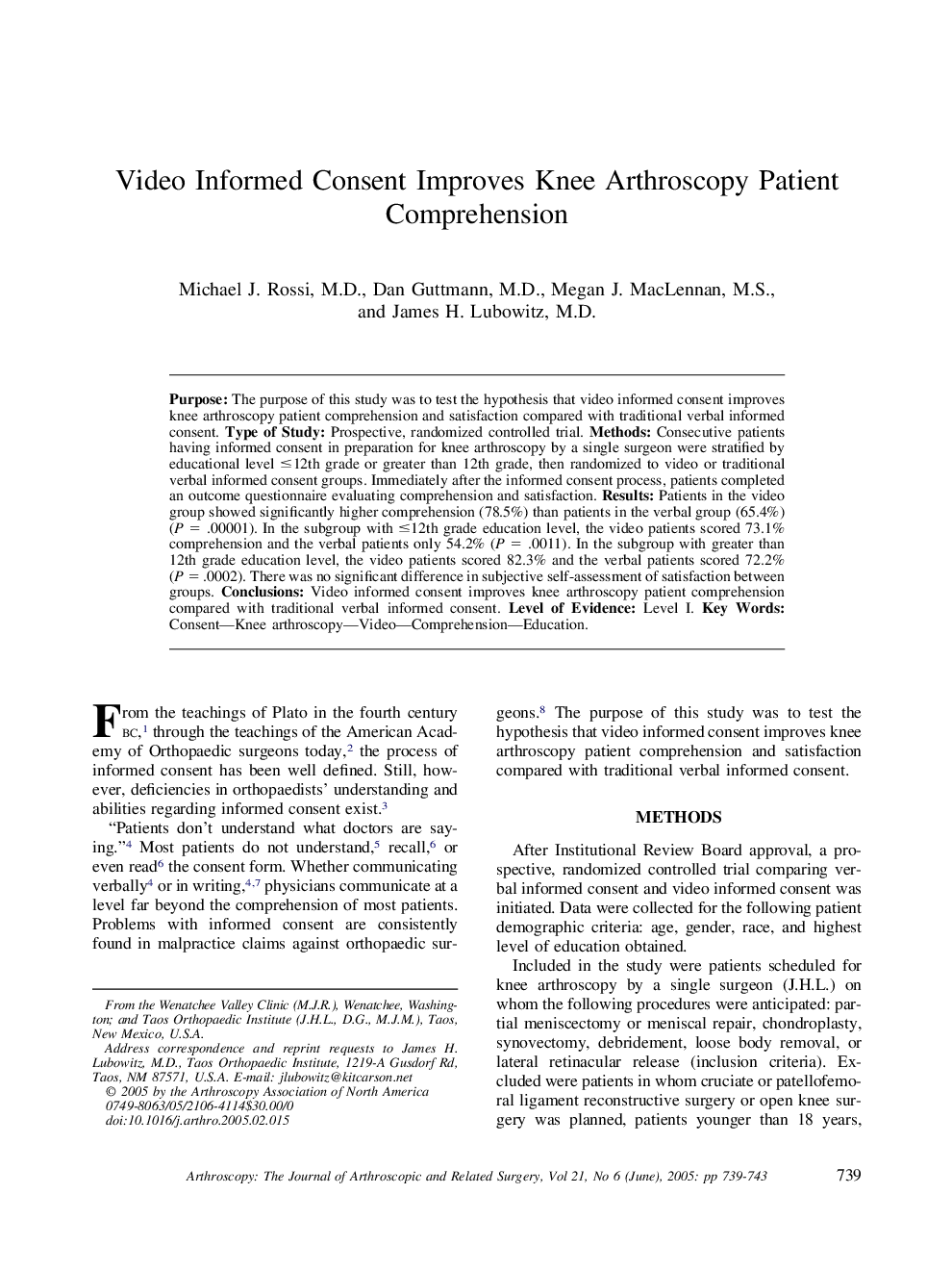| Article ID | Journal | Published Year | Pages | File Type |
|---|---|---|---|---|
| 10079000 | Arthroscopy: The Journal of Arthroscopic & Related Surgery | 2005 | 5 Pages |
Abstract
Purpose: The purpose of this study was to test the hypothesis that video informed consent improves knee arthroscopy patient comprehension and satisfaction compared with traditional verbal informed consent. Type of Study: Prospective, randomized controlled trial. Methods: Consecutive patients having informed consent in preparation for knee arthroscopy by a single surgeon were stratified by educational level â¤12th grade or greater than 12th grade, then randomized to video or traditional verbal informed consent groups. Immediately after the informed consent process, patients completed an outcome questionnaire evaluating comprehension and satisfaction. Results: Patients in the video group showed significantly higher comprehension (78.5%) than patients in the verbal group (65.4%) (P = .00001). In the subgroup with â¤12th grade education level, the video patients scored 73.1% comprehension and the verbal patients only 54.2% (P = .0011). In the subgroup with greater than 12th grade education level, the video patients scored 82.3% and the verbal patients scored 72.2% (P = .0002). There was no significant difference in subjective self-assessment of satisfaction between groups. Conclusions: Video informed consent improves knee arthroscopy patient comprehension compared with traditional verbal informed consent. Level of Evidence: Level I.
Related Topics
Health Sciences
Medicine and Dentistry
Orthopedics, Sports Medicine and Rehabilitation
Authors
Michael J. M.D., Dan M.D., Megan J. M.S., James H. M.D.,
